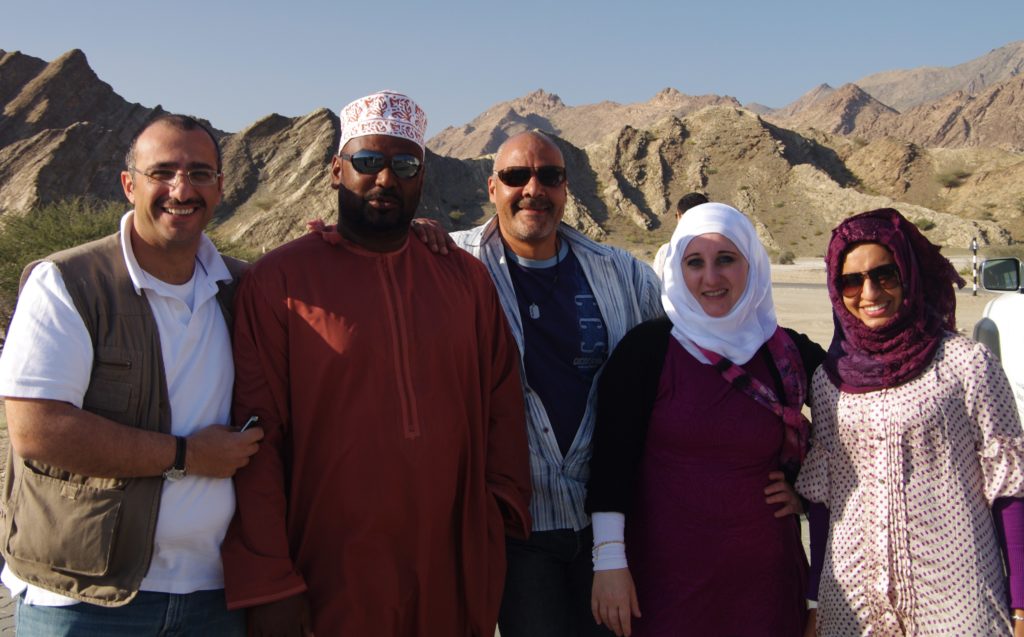
Ras Al-Jinz Nature Reserve, Oman. Alumni from left: Mohammad Said-Al-Khatib, Younis Al Balushi, Yasser Said, Manal Al-Foqaha, and Aida Al Jabri
- Middle Eastern Fellows hail from Egypt, Gaza, the Gulf States, Iran, Iraq, Israel, Jordan, Lebanon, North Africa, Oman, Saudi Arabia, Syria, Turkey, the United Arab Emirates, and the West Bank.
- Alumni represent leading organizations and academic institutions in the Middle East and often work in partnership to advance the common good of the region.
QLF’s Middle East Exchange Program leverages a shared passion and concern for conserving the natural environment as the common language to convene individuals across political and cultural boundaries.
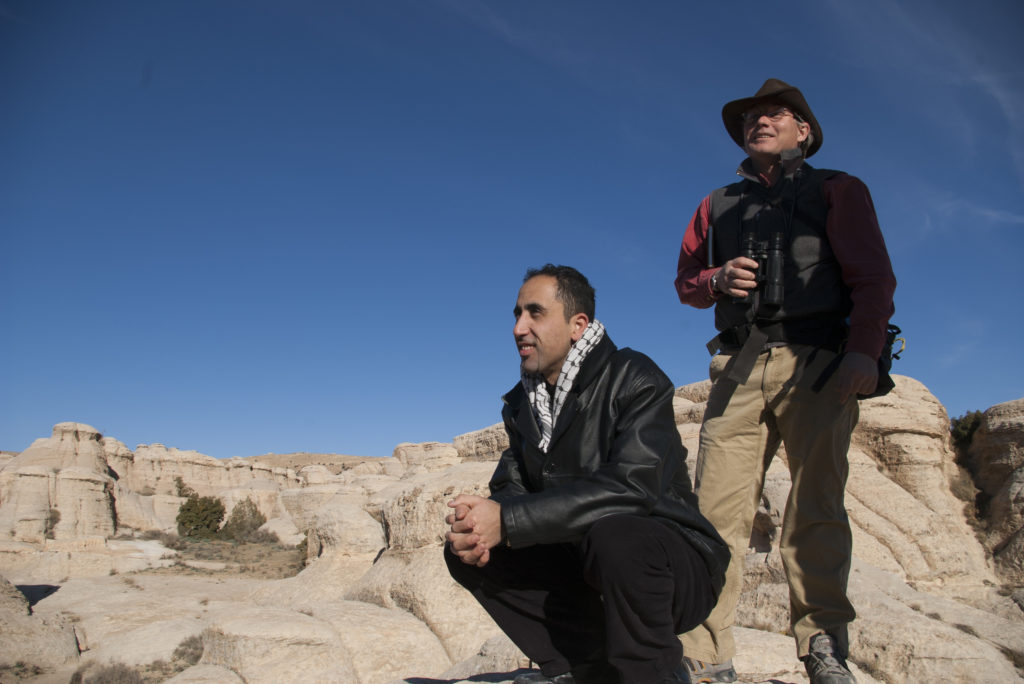
Fellows of the Middle East Program who as their colleagues are advocates for consensus building and collaborative conservation. From left: Sami Backleh (Palestine) and Charles Curtin (U.S.), Dana Nature Reserve, Jordan, 2008
For over 22 years, the program has directed fifteen Exchange Programs for Middle East Conservation Leaders in New England; five Exchange Programs for New England-based conservation leaders to the Middle East; four Regional Meetings in the Middle East for Program Alumni; five in-region Internships; and ten Regional Workshops and Seminars. The program has inspired many in-region projects directed by Alumni with Alumnus Sami Backleh as the Program’s Senior Advisor based in East Jerusalem.
The 2006 Alumni Congress was attended by 200 Alumni and partners from 35 countries, including 25 Alumni from the Middle East.
Regional Meetings have been crucial to the program’s success, as they ensure that QLF remains focused on its long commitment to community-based conservation in the Middle Eastern region. These reunions allow QLF to reflect on the program, plan for its future, engage program Alumni, and continue to foster cross-border partnerships.
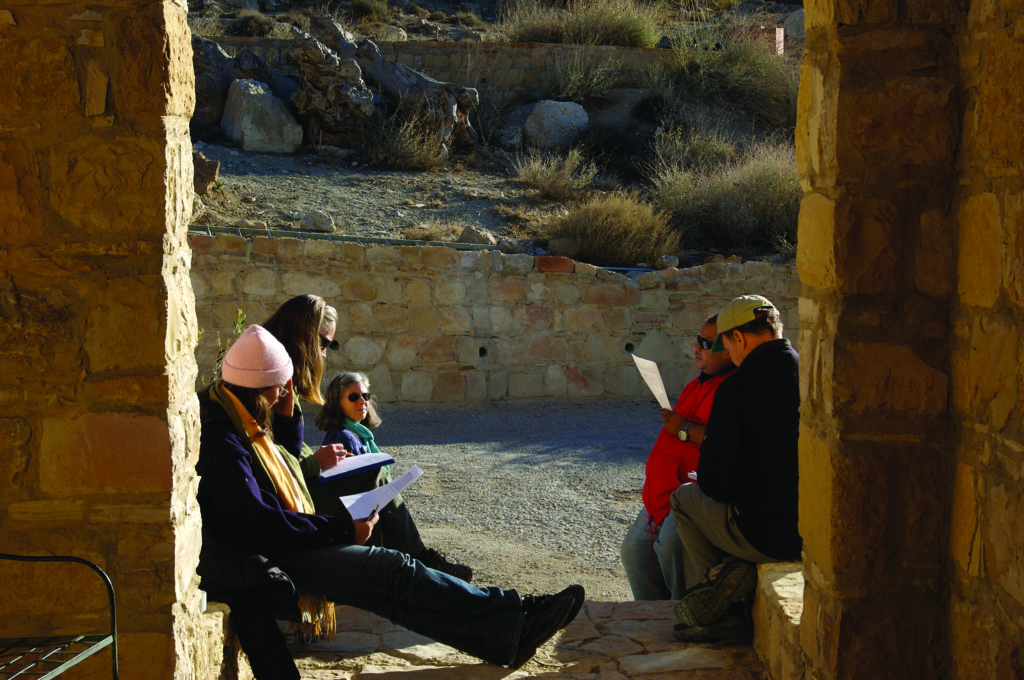
Capacity and Consensus Building Workshop (2008). Participants in a small group session, Dana Nature Reserve, Jordan
Middle East Exchange Program Regional Meetings include:
- The Middle East Program 20th Anniversary Regional Meeting in Oman in 2012, attended by 35 Alumni
- The 2008 Regional Meeting in Turkey, attended by 25 Middle East Alumni
- The 2002 Regional Meeting in Turkey
- The 2001 Regional Meeting in Cyprus
Meetings covered a wide range of pertinent topics including: conflict resolution; consensus building; environmental education; community empowerment and civic engagement; wildlife conservation & conservation biology; community-based conservation; ecotourism & economic development; and management of protected areas.

Sami Backleh holds a Short-toed Eagle (Circaetus galicus)
The Middle East Program has measurable benefits:
- The meeting in Oman opened doors for Alumni from Lebanon, Jordan and Egypt, who went on to work with the Ministry of Environment and Climate Affairs in Oman
- The Middle East Program Steering Committee – created at the Regional Meeting in Oman (2012) – founded the project Conservation of Urban Birds in Israel and Palestine
- The Congress acted as the birthplace for notable Middle East projects, including:
- Stories for Environmental Stewardship (SES), a book project championed by Alumnus Michael Caduto (Vermont, U.S.)
- Proposed by Alumna Tammy Keren-Rotem (Israel), with widespread support from Middle Eastern Alumni
- SES is a collection of stories from a variety of Middle Eastern countries that highlight individuals’ relationships with nature as a unifying platform to connect people across boundaries
- Alix Hopkins’ book project, A Quiet Fire: Courage, Community and Conservation in the Middle East
- A Quiet Fire: Courage, Community and Conservation in the Middle East tells stories that highlight the cooperative work undertaken despite difficult circumstances.
- Stories for Environmental Stewardship (SES), a book project championed by Alumnus Michael Caduto (Vermont, U.S.)
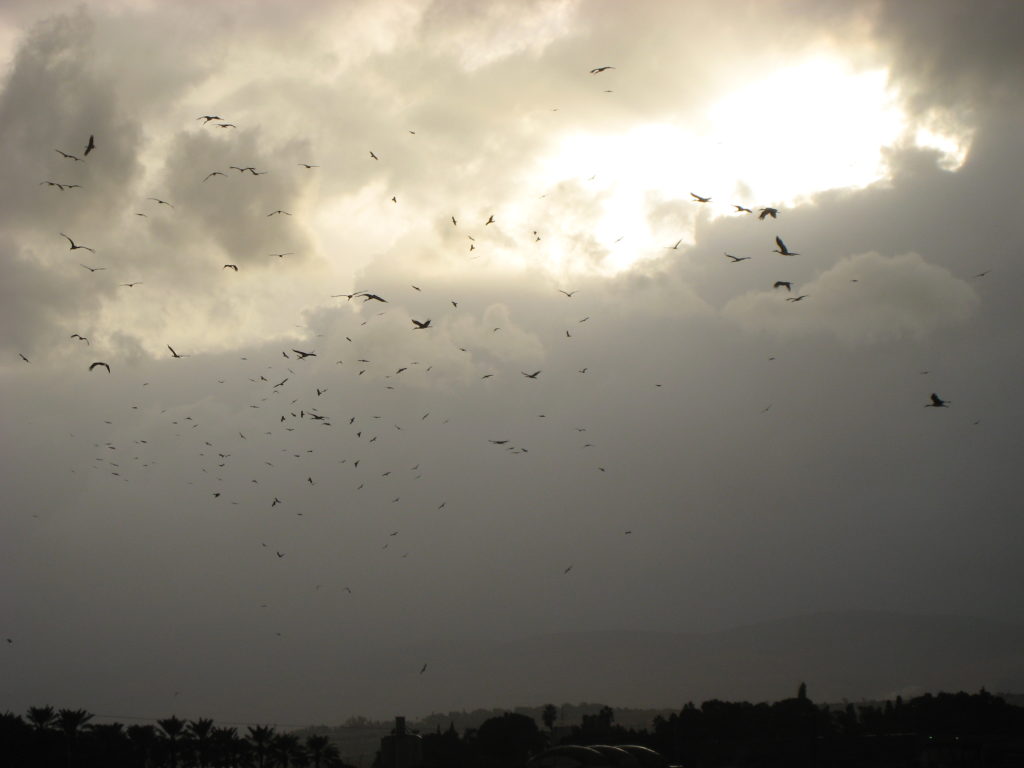
After a rainstorm and approaching the Sheikh Hussein Border Crossing between the West Bank and northern Jordan (2007). Fellowship to the Middle East, November 2007. Here, we found ourselves witness to the migration of many species of birds including White Storks (Ciconia ciconia), Black Kites (Milvus migrans), and Common Buzzards (Buteo buteo). The sight of these birds flying unencumbered across international borders, as they have done for centuries, was a message of hope on our journey, and symbolic of QLF’s Mission in the Middle East.
“The people and their projects have become quiet but powerful peace-building tools. And you would never have imagined, with all of the conflicts that people face in the region, that they would have the time or the inclination to undertake these meaningful projects.”
Alix Hopkins, Environmental Consultant, Author
Council, Quebec-Labrador Foundation
Facilitator, Middle East Exchange Program (2007–2010 )
United States
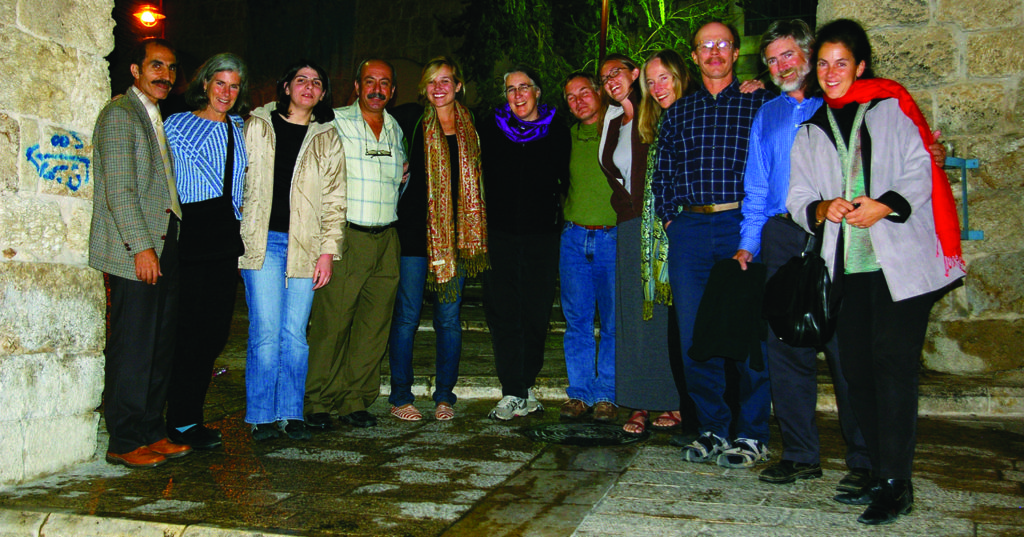
Fellowship to the Middle East, 2007. Alumni Dinner, Beit Sahour, West Bank, Palestine
QLF’s International Programs seek to bolster the work of individuals striving for social and ecological sustainability in their communities by facilitating dialogue, building skills, and nurturing partnerships.
- QLF embraces a unique approach to work across borders through its programs. In the Middle East, such borders transcend geographic dimensions.
- QLF has is distinguished by its emphasis on connecting environmental problem solving with associated needs of culture and community. Environmental issues cannot be addressed without making sure that solutions include people.
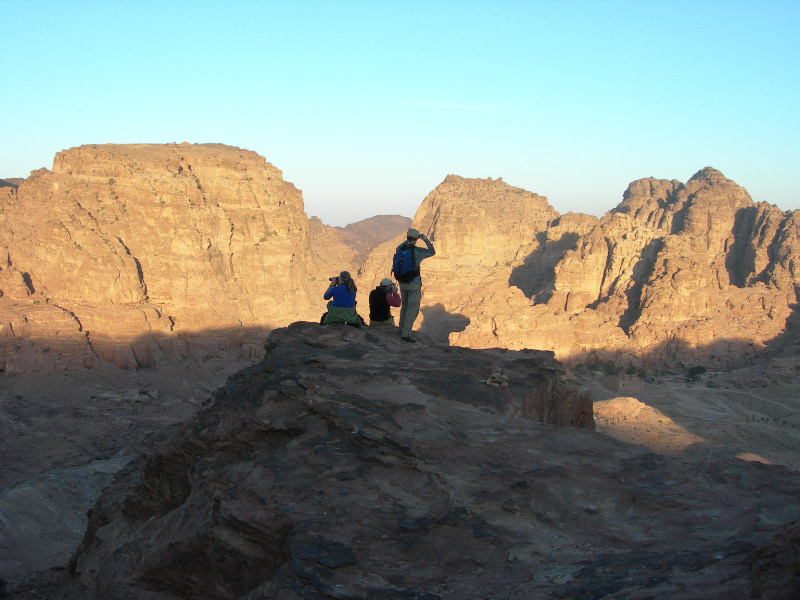
One last look, Petra, Jordan (2008)






